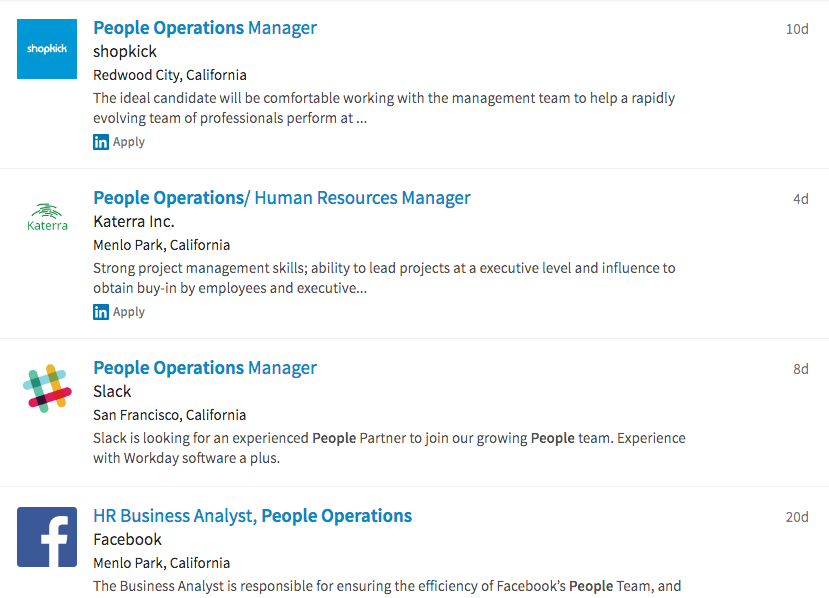If you follow as many culture blogs and newsletters as I do, you've probably noticed a shift in terminology over the last five years. Organizations have started calling their HR departments by a new name: People Operations, People Teams, Talent Team, or some variant of one of those.
Jacob Morgan on Huffington Post recently reported that Human Resources is Dead, and Maia Josebachvili recently wrote on LinkedIn that "Human Resources is reinventing itself. The most progressive companies have replaced HR with new People Teams."
I wondered why this shift happened, and who started it? In 2006, Google was the first company to change its HR department name to People Operations. Laszlo Bock, the SVP of People Operations at Google, writes in his book WORK RULES! that, "At Google, conventional business language wasn't well-regarded. 'HR' would be viewed as administrative and bureaucratic. In contrast, 'operations' was viewed by engineers as a credible title, connoting some actual ability to get things done."
These departments are rebranding themselves to reflect three important changes: 1) they are becoming more people-centered. Rather than having separate silos for functions like compensation, training, and hiring, People Operations teams have a streamlined and unified approach to supporting employees across their life cycle at the organization; 2) People Operations teams are aligning themselves as strategic partners with the organization's leadership, rather than simply being the management's sidekick; and 3) People Operations teams are more transparent and data-driven than typical HR departments.
Patty McCord, former Chief Talent Officer at Netflix, wrote in the Wall Street Journal that in the workplace of the future, "We’re not going to have silo departments within a company that operate on their own and never see the outside world. And we need to educate our employees accordingly by teaching them how the entire business works and how they fit into the machine. I’d rather have employees spend one hour learning how a company makes its money than sit through a yearlong course on conflict management." The openness and transparency in the workplace will help the pay gap close, and lead to more diversity in organizations. "With more knowledge about their market value, gained by taking interviews and by looking at websites that post salaries, women are going to know what they’re worth, and they’re going to get it. We’ll see more diversity in companies because companies will reflect the customers they serve," McCord writes.
What are other names for new HR departments that you've heard of? And how are they reflecting a shift in the nature of human resources?
A search for People Operations jobs on LinkedIn reveals 70,000 jobs in the United States

